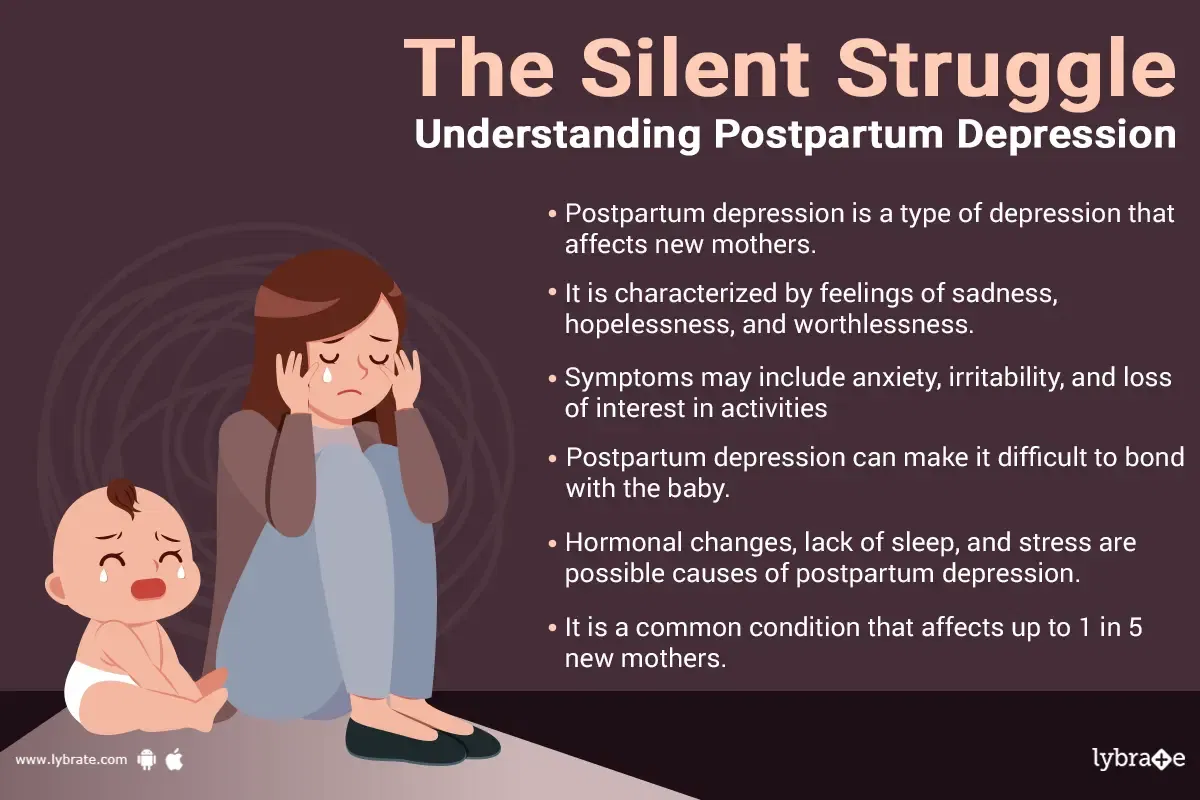Beautiful Journey Reproductive Counseling Center for Dummies
Beautiful Journey Reproductive Counseling Center for Dummies
Blog Article
The Only Guide to Beautiful Journey Reproductive Counseling Center
Table of ContentsThe Greatest Guide To Beautiful Journey Reproductive Counseling CenterThings about Beautiful Journey Reproductive Counseling CenterThe 8-Second Trick For Beautiful Journey Reproductive Counseling CenterThe Facts About Beautiful Journey Reproductive Counseling Center RevealedThe Buzz on Beautiful Journey Reproductive Counseling CenterThe Greatest Guide To Beautiful Journey Reproductive Counseling Center

Working with psychological health experts is a wonderful method to learn regarding postpartum depression and exactly how to recoup. Therapy is an individual and important means to treat postpartum clinical depression.

See This Report about Beautiful Journey Reproductive Counseling Center
There have actually not been conclusive studies published that looked particularly at folate or various other B vitamins in the therapy of postpartum depression. Think about suggesting to females who are postpartum to continue their prenatal vitamin or take a B-100 complex with concerning 1 mg (or 1,000 mcg) of folic acid, or folate.
Modification of vitamin D shortage may play a considerable function in the healing from postpartum anxiety. Mommies dealing with anxiety must have their 25-OH vitamin D level tested. Many ladies locate that they require at the very least 2,000-3,000 IUs of cholecalciferol, which is vitamin D3 (a type that is extremely easily soaked up) throughout the cold weather.
In the summertime, less oral vitamin D may be required, relying on the latitude where the mom lives. postpartum therapy.
The 10-Minute Rule for Beautiful Journey Reproductive Counseling Center

[15, 16 (https://www.twitch.tv/beaj0urepcc/about)] Anticoagulation may be utilized, and it should be noted that there exists no global standard or referral for anticoagulation treatment in septic pelvic apoplexy. Preliminary bolus of 60 units/kg (4000 devices maximum) adhered to by 12 units/kg/h (maximum of 1000 units/h) is recommended. [6] The aPTT is kept an eye on for 2-3 times the normal value.
Postpartum clinical depression (PPD) is an intricate mix of physical, psychological, and behavior adjustments that happen in some females after giving birth. According to the DSM-5, a manual utilized to identify psychological disorders, PPD is a type of significant clinical depression that starts within 4 weeks after delivery. The diagnosis of postpartum clinical depression is based not only on the size of time in between delivery and onset however on the severity of the depression.
The term describes a variety of physical and emotional modifications that several brand-new mothers experience. The real web link in between this decline and clinical depression is still not clear.
The Of Beautiful Journey Reproductive Counseling Center
Often, signing up with a support system of new mommies or speaking with various other mamas aids. can take place a few days or perhaps months after giving birth. PPD can happen after the birth of any type of child, not simply the first kid. You you can try here can have sensations similar to the infant blues-- despair, despair, anxiousness, crankiness-- but you feel them a lot more strongly.
When your ability to feature is influenced, you need to see a health care supplier, such as your OB/GYN or key treatment doctor. If you don't get treatment for PPD, symptoms can get worse.
This health problem can take place promptly, frequently within the very first 3 months after childbirth. Ladies can lose touch with truth, having acoustic hallucinations (hearing points that aren't in fact taking place, like an individual chatting) and delusions (strongly believing points that are plainly irrational). Aesthetic hallucinations (seeing points that aren't there) are much less common.
Women who have postpartum psychosis demand treatment today and often need medication. In some cases females are taken into the medical facility because they are at threat for harming themselves or somebody else. Postpartum anxiety is discriminated, relying on the kind of signs and how serious they are. Treatment options consist of anti-anxiety or antidepressant medicines, psychiatric therapy, and involvement in an assistance group for psychological assistance and education.
Beautiful Journey Reproductive Counseling Center for Dummies
Children of mommies with postpartum depression are a lot more most likely to have problems with sleeping and consuming, crying greater than usual, and delays in language advancement. If you have a background of anxiety, inform your doctor as soon as you learn you're pregnant, or if you're planning to become expecting.
PPD can take place after the birth of any kid, not simply the initial youngster. You can have sensations comparable to the child blues-- unhappiness, despair, stress and anxiety, crankiness-- however you feel them much extra highly.
When your ability to function is influenced, you require to see a health and wellness care supplier, such as your OB/GYN or key treatment medical professional. If you do not get therapy for PPD, signs and symptoms can get even worse.
This disease can happen quickly, typically within the first 3 months after giving birth. Ladies can lose touch with fact, having auditory hallucinations (hearing points that aren't really happening, like a person chatting) and misconceptions (strongly thinking things that are plainly irrational). Aesthetic hallucinations (seeing things that aren't there) are much less typical.
Beautiful Journey Reproductive Counseling Center for Dummies
Women that have postpartum psychosis need treatment right away and practically constantly need medicine. Treatment alternatives consist of anti-anxiety or antidepressant medications, psychotherapy, and engagement in an assistance group for emotional assistance and education.
Youngsters of mothers with postpartum depression are more likely to have problems with resting and eating, weeping even more than common, and hold-ups in language growth (perinatal support). If you have a history of clinical depression - https://medium.com/@johncoates07432/about, tell your doctor as soon as you figure out you're expectant, or if you're planning to become expectant
Report this page